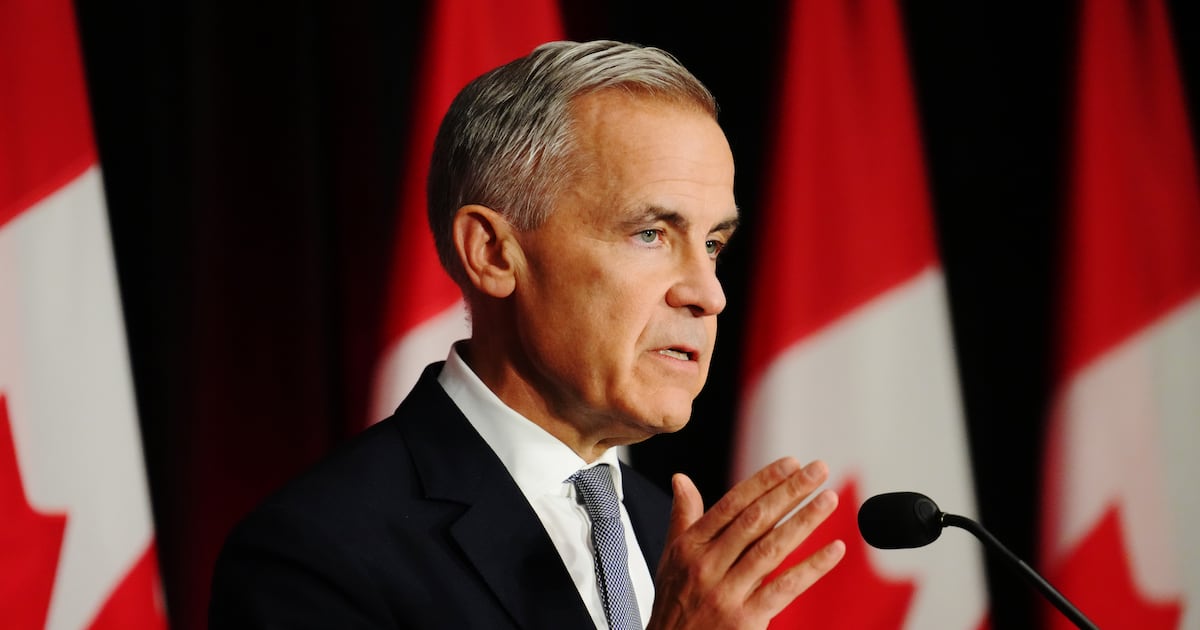Business
Canadians Torn Between Investment and Deficit in Federal Budget

Canadians are currently divided on whether Prime Minister Mark Carney should prioritize significant investments or focus on reducing the federal deficit in his upcoming budget. A survey conducted for CTV News by Nanos Research highlights this split, indicating a nuanced shift in public sentiment regarding fiscal policy.
The survey asked Canadians to choose between investing in programs and balancing the budget to alleviate the tax burden. In pre-COVID-19 polling, a substantial 55 percent of respondents supported balancing the budget, compared to 43 percent who favored running a deficit to fund additional programs. A mere 2 percent expressed uncertainty. By February 2023, the preference for deficits had declined to 35 percent, while support for balancing the budget remained steady at 56 percent.
Recent findings show that opinions on budget priorities are closely aligned: 47 percent of Canadians now prefer running a deficit for investments, while 48 percent lean towards focusing on budget reduction. The remaining 5 percent are undecided. According to Nik Nanos, chief data scientist and founder of Nanos Research, this shift reflects a growing acceptance of short-term deficits as a means of investment.
Public Priorities Reflect Economic Pressures
Carney’s upcoming budget is poised to represent a significant departure from previous fiscal strategies. Nanos emphasized that even with potential fiscal tightening, the government would not be granted “carte blanche” to run persistent deficits. Instead, there appears to be a growing acknowledgment of the importance of investing in infrastructure, economic growth, and job creation.
The economic pressures facing Canadians are evident, particularly in light of the recent drop in GDP reported in August. When asked to rank their priorities for the federal budget, 30 percent of Canadians identified health care as the most significant concern. This figure, however, marks a notable decline of 19 percentage points from 2023, when nearly half of respondents emphasized health care as a priority.
Instead, new areas of concern have emerged, including housing, which garnered 12 percent of the vote, followed by inflation relief at 6 percent, defense spending at 5 percent, and tariff relief at 4 percent. These emerging priorities were not present in the 2023 survey, indicating a shift in public focus.
Nanos noted that many Canadians are currently preoccupied with immediate financial concerns such as rent and grocery costs, alongside job security. He stated, “For average Canadians, what they want to see is no cuts to health care at this particular point in time but they’re going to want to see investments in the long term.” He emphasized that in the short term, investments in infrastructure and job creation are crucial for reducing reliance on the United States.
Survey Methodology and Implications
The Nanos Research survey was conducted using a random digit dialing (RDD) method, combining both landline and cell-line interviews. A total of 1,045 Canadians, aged 18 and older, participated in the survey between October 27 and 30, 2025. The results carry a margin of error of plus or minus three percentage points, 19 times out of 20. The findings were weighted by age and gender to accurately represent the Canadian population based on the latest census data.
As the federal budget approaches, the division in priorities among Canadians illustrates the complexities of balancing economic growth with fiscal responsibility. Carney’s decisions in the coming weeks will likely reflect these competing interests, shaping the economic landscape for Canadians in the near future.
-

 Education3 months ago
Education3 months agoBrandon University’s Failed $5 Million Project Sparks Oversight Review
-

 Science4 months ago
Science4 months agoMicrosoft Confirms U.S. Law Overrules Canadian Data Sovereignty
-

 Lifestyle3 months ago
Lifestyle3 months agoWinnipeg Celebrates Culinary Creativity During Le Burger Week 2025
-

 Health4 months ago
Health4 months agoMontreal’s Groupe Marcelle Leads Canadian Cosmetic Industry Growth
-

 Science4 months ago
Science4 months agoTech Innovator Amandipp Singh Transforms Hiring for Disabled
-

 Technology3 months ago
Technology3 months agoDragon Ball: Sparking! Zero Launching on Switch and Switch 2 This November
-

 Education3 months ago
Education3 months agoRed River College Launches New Programs to Address Industry Needs
-

 Technology4 months ago
Technology4 months agoGoogle Pixel 10 Pro Fold Specs Unveiled Ahead of Launch
-

 Business3 months ago
Business3 months agoRocket Lab Reports Strong Q2 2025 Revenue Growth and Future Plans
-

 Technology2 months ago
Technology2 months agoDiscord Faces Serious Security Breach Affecting Millions
-

 Education3 months ago
Education3 months agoAlberta Teachers’ Strike: Potential Impacts on Students and Families
-

 Science3 months ago
Science3 months agoChina’s Wukong Spacesuit Sets New Standard for AI in Space
-

 Education3 months ago
Education3 months agoNew SĆIȺNEW̱ SṮEȽIṮḴEȽ Elementary Opens in Langford for 2025/2026 Year
-

 Technology4 months ago
Technology4 months agoWorld of Warcraft Players Buzz Over 19-Quest Bee Challenge
-

 Business4 months ago
Business4 months agoNew Estimates Reveal ChatGPT-5 Energy Use Could Soar
-

 Business3 months ago
Business3 months agoDawson City Residents Rally Around Buy Canadian Movement
-

 Technology2 months ago
Technology2 months agoHuawei MatePad 12X Redefines Tablet Experience for Professionals
-

 Business3 months ago
Business3 months agoBNA Brewing to Open New Bowling Alley in Downtown Penticton
-

 Technology4 months ago
Technology4 months agoFuture Entertainment Launches DDoD with Gameplay Trailer Showcase
-

 Technology4 months ago
Technology4 months agoGlobal Launch of Ragnarok M: Classic Set for September 3, 2025
-

 Technology4 months ago
Technology4 months agoInnovative 140W GaN Travel Adapter Combines Power and Convenience
-

 Science4 months ago
Science4 months agoXi Labs Innovates with New AI Operating System Set for 2025 Launch
-

 Top Stories2 months ago
Top Stories2 months agoBlue Jays Shift José Berríos to Bullpen Ahead of Playoffs
-

 Technology4 months ago
Technology4 months agoNew IDR01 Smart Ring Offers Advanced Sports Tracking for $169










